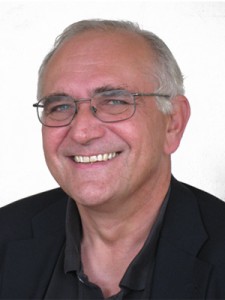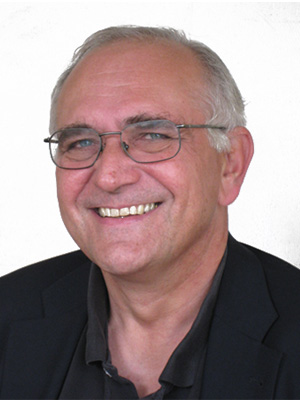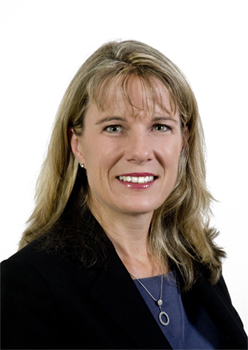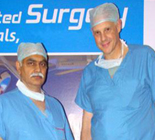Professor Gérard de Pouvourville holds a doctorate in Economics, Université de Aix Marseille, and graduated from the French prestigious Ecole Polytechnique. His major research areas are in health policy, healthcare financing and health technology assessment. He recently co-published a book on globalization of managerial innovations in the field of healthcare management and is also co-author of a handbook on health economics and management. He has been an invited research scientist at the Wharton School, University of Pennsylvania, and at the Department of Public Health, University of Montreal. Professor de Pouvourville is currently Vice-President of the French Association of Health Economists, a member of the International Health Economics Association and the International Society for Pharmaceutical Outcomes Research. He has been a member of the French National Committee for the Evaluation of Research from 1995 to 2001, and a member of the Scientific Committee of the National Research Institute for Health and Medicine from 2000 to 2005. He now sits on the Scientific Council of the French National Sickness Fund. Professor de Pouvourville is an advisor to the French Ministry of Health and the French National Sickness Fund, and consults with major pharmaceutical companies

Chaired Professor, Chair of Health Systems, Director
1. Healthcare organisations are under constant pressure to improve the quality of care! What is your perception in this regard?
- • In the past, quality of care was assumed and patients trusted the healthcare professionals. Now, with internet and advanced medical technologies, patients are more and better informed on what is good care and are more demanding in getting high quality healthcare services. There are also instruments to measure and evaluate the quality of care and patients can decide on the levels of health care service they want or can afford.
- • Quality of care doesn’t always mean using the most innovative solutions. It could simply mean using the most appropriate solutions and interventions. However, the quality of the professionals and health delivery processes have to improve in order to facilitate more selective healthcare interventions.
2. Can you enlighten us about IHEM?
- • ESSEC Business School has committed for more than 20 years to the needs of higher education for top healthcare executives, through the ESSEC Institute of Health Economics and Management – the Chair of Health Systems and the Chair of Therapeutic Innovation.
- • The ESSEC Institute of Health Economics and Management has a team of faculty members and permanent researchers. It offers a wide variety of executive education programmes for middle and senior managers working in health organisations such as hospitals, biopharmaceutical companies and public health agencies.
- • The Institute is also dedicated to the creation of scientific knowledge through its research in Health Technology Assessment, strategic hospital management, primary healthcare services funding and organisation, health insurance economics, and the impact of health regulations on biomedical innovation and market access. Researchers are regularly invited to participate on expert panels by healthcare authorities. They also offer consultancy services to private organisations on national and international issues.
- • Operating from ESSEC Business School’s campuses in France and Singapore, the Institute is developing a global network of academic collaboration with leading universities in the US, Europe and Asia such as the UCLA School of Public Health (Los Angeles), the University of Lausanne (Switzerland), Keio University (Tokyo) and Fudan University (Shanghai).
- • The objective of ESSEC Institute of Health Economics and Management Asia Pacific is to share knowledge and experiences on healthcare economics, management and provision between Europe and Asia Pacific, and to learn from each other. The healthcare sector faces challenging issues – population ageing, epidemiological transition with still prevalent communicable diseases and a rise of chronic diseases. There is a real demand for accessible, high quality healthcare services, supported by a concurrent demand for health insurance.
3. What motivated you to join an Institute? In your opinion what makes you happy being in Healthcare sector? You have many publications in terms of Books and Articles, could you brief about them?
- • I joined ESSEC as a professor and, together with Annie Chicoye, direct and develop IHEM within ESSEC Business School.
- • The humanistic dimension is one reason. Healthcare deals with human and life issues and this is interesting to me for ethical reasons and a sense of responsibility towards mankind.
- • My major research areas are in health policy, healthcare financing and health technology assessment. I’m very much fascinated by the new technologies and the evolving landscape in health provision.
- • The healthcare sector is one of the most challenging sectors because it is highly regulated and the challenges in terms of economics, management and regulations are numerous and diverse.
- Some of my books:
Traité d’économie et de gestion de la santé. (with D. Tabuteau, PL. Bras). Paris (France) : Presses de Sciences Po , 2009 The globalization of managerial innovation in health care. (with J. Kimberly, T. D’aunno). Cambridge (USA) : Cambridge University Press, 2008 (Multi-author book ) - Most recent Articles:
“Paying Doctors for performance” (G. De Pouvourville), European Journal of Health Economics , Jun 2012 “Evaluation of cost savings with ferric carboxymaltose in anemia treatment through its impact on erythropoiesis-stimulating agents and blood transfusion: French healthcare payer perspective” (G. De Pouvourville, E. Luporsi, L. Mahi, C. Morre, J. Wernli, R. Bugat), Journal of Medical Economics, Nov 2011, Vol. 5, Issue 2, p. 225-232 “Valuing EQ-5D using Time Trade-Off in France” (G. De Pouvourville, J. Chevalier), European Journal of Health Economics “Cost of non-persistence with oral biphosphonates in post-menopausal osteoporosis treatment in France. ” (G. De Pouvourville, FE. Cotté), BMC Health Services Research. , Jun 2011, Vol. 11, Issue 151, p. 1-10
4. How can healthcare policymakers improve citizens’ health while controlling costs?
- • Basically, the solution is to invest in the assessment of healthcare technologies (HTA) and improving the efficiency of the healthcare services.
- • It is also important for health care policy makers to regularly share and exchange information and experience so as to learn from each other. Our recent Health Forum in Singapore, which has been very successful, is an ideal platform to facilitate this high level exchange and we hope that this will spur many more policy makers to join us annually in the Asia Pacific region.
5. In your opinion, what Asia can learn from European healthcare economics and management? Any important topics you would like to highlight.
- • Government intervention in healthcare is a key driver of economic growth in the West. Healthcare spending in OECD countries average about 9% of GDP compares to about 4% in Asia. Asian healthcare systems can learn from both the failures and successes of Western healthcare systems.
- • With the rise in chronic diseases while still have infectious diseases to deal with, Asia is facing a real challenge in healthcare, over a very short time span; it certainly can learn from European healthcare systems that took over a century to mature and not repeat some of the mistakes made.
- • Control of infectious diseases is an area where Asia can learn from their successful European counterparts.
- Finally, because of rising health care costs, European countries have now developed sophisticated systems to assess efficacy, effectiveness, and efficiency of health care services, the learnings of which they are eager to share with Asian countries.
6. What makes India such an attractive destination for Healthcare companies?
- • The booming population, the economic growth and the impressive investment in higher education and research,
- • All these lead to the enormous potential in healthcare innovation
7. What are the market opportunities for Healthcare Industry in the next few years i.e. till 2015?
- • Emerging countries represent the growth segment for the healthcare industry in the coming years.
- • Rising affluence in Asia results in higher demand in good healthcare and a trend towards extensive use of healthcare intervention; antibiotics for instance.
- • There are many opportunities in innovation in medical solutions, drug solutions, diagnostic solutions and IT solutions.
8. With eHealth being the buzzword! What are the healthcare trends that may emerge in Asia particularly in the provision and access of good healthcare?
- • The impact of IT is significant to start with – collecting huge amount of data every day, analysing those data and sharing the information; knowing more about the system is necessary to improve it effectively;
- • Furthermore, IT and Communications open huge opportunities to health care system in Asia, where there is a shortage of health care professionals, transportation infrastructure, limited funding and still a lot out-of pocket to pay for patients. The rising focus in telemedicine, remote treatment and monitoring especially for chronic diseases is very promising for the development of innovative and cost/effective solutions;
- • Developing capabilities in new ways of monitoring and make patients more responsible for their health will spur new technologies and new access to information resulting in patients being more informed and more empowered for their health and wellness. It changes the relationships between patients and doctors.
9. Emerging markets like India & other Asian regions are currently witnessing faster maturity among healthcare providers towards adoption of IT driven systems and sophisticated technology applications. How do you foresee opportunities in such markets and how could an Institution help in this regard?
- • India as well as other emerging economies has a greater advantage in adopting new technologies than most developed countries. This is because developed nations have deep rooted legacy systems to deal with while developing ones can leap frog to the latest medical innovations and IT systems.
- • In many cases, using IT systems turns out to be economically efficient and IT solutions are more cost effective. It’s crucial to provide educational programmes to help people in charge of developing these systems more aware of how to set them up and how to assess their value. This is important to ensure that sophisticated IT systems are well implemented in healthcare organisations.
- • Another major hurdle is privacy protection on health/personal data. This is a challenge faced by developed and developing nations today. At the end of the day, every country will need a legal framework to control and manage data privacy.
- • Educational programmes are often centred on technical issues and have a technical approach to new technologies. An educational institution like ESSEC IHEM addresses the needs through a managerial and organisational approach as well as influencing policies at a higher level, often through research.
10. Asian Hospitals and Healthcare Management’ a leading Healthcare title in print and digital versions reaches directly to key industry professionals & the decision makers in the Healthcare industry. The magazine addresses the most significant developments, trends and features opinions and analyses by respected leaders from the Hospitals & Healthcare industry. What do you think about our magazine who is into promoting & branding healthcare industry today on such a wide scale?
- • It is important for healthcare stakeholders to share their view points, their knowledge and understand their common interests. A magazine like Asian Hospitals and Healthcare Management helps to disseminate information, knowledge and best practices which will eventually lead to the improvement of the quality of healthcare services.
- • AHHM also plug a gap in this region where there is so few or no specialised media outlet covering health care and the hospital sectors




